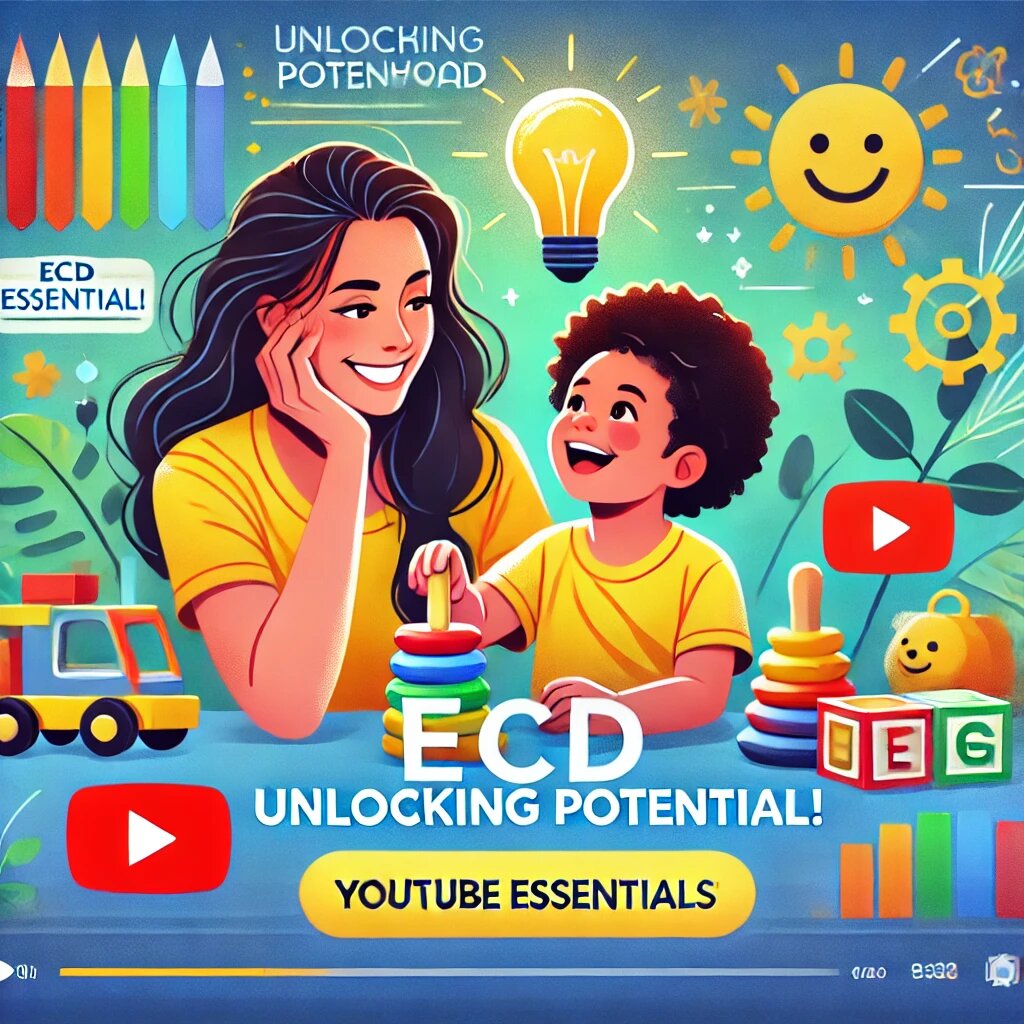The development of the children through birth to eight years of age is defined as early childhood development (ECD). This post convey the information on early childhood development and the significance of this stage for development of a child.

Table of Contents
- The importance of early childhood development
- Key areas of early childhood development
- The role of parents and caregivers
- Why to support early childhood development
- The importance of early education
- Conclusion
Early Childhood Development refers to development of a child in all aspect like, physical, cognitive, social, linguistic and emotional development. This period is crucial, as it lays the foundation for future learning, behavior, and health. Understanding the key aspects of early childhood development enables parents, caregivers, and educators to create nurturing environments that promote positive growth.
The Importance of Early Childhood Development
Early childhood years are very significant as the development in all domains days the foundation of life. This is most influential tenure when the rapid development occurs in physical, cognitive, linguistic, social and emotional areas. While early childhood, the brain of a child goes under a rapid development. Studies show that the brain forms neural connections at an incredible rate, influenced by both genetics and environmental experiences. Positive interactions, stimulating activities, and a supportive environment contribute to healthy brain development and long-term success.
Key Areas of Early Childhood Development
- Cognitive Development
The intellectual development of a child like thinking ability, decision making, solving problems and to learn is called cognitive development. While children explore the environment around them, face challenges and overcome it, they achieve problem solving skills and creativity. So the parents and adults should encourage them to explore and stimulate them to grow their curiosity. Activities such as reading, puzzles, and hands-on learning experiences stimulate cognitive growth.
- Language and Communication Skills
Language development is essential for communication and literacy. Talking, singing, and reading to children from an early age enhance vocabulary and comprehension. Encouraging children to express their thoughts and feelings helps build strong communication skills.
- Social and Emotional Development
Building emotional intelligence and social skills starts in early childhood. Children learn to understand emotions, develop empathy, and form relationships. Providing a loving, secure environment helps them feel safe and confident in expressing themselves.
- Physical Development
Physical growth includes both fine motor skills (such as grasping and writing) and gross motor skills (such as running and jumping). Engaging in activities like drawing, playing with building blocks, and outdoor games strengthens coordination and muscle development.
- Moral and Ethical Development
Children begin to learn about values, fairness, and right from wrong at an early age. Teaching them about kindness, honesty, and responsibility through example and storytelling fosters good moral character.
The Role of Parents and Caregivers
Parents and caregivers play a vital role in early childhood development. Providing a safe, nurturing environment filled with love and encouragement supports a child’s overall well-being. Simple actions like listening, playing, and responding to a child’s needs create positive emotional connections.
Ways to Support Early Development:
- Read books together daily to boost language skills.
- Encourage play to develop creativity and problem-solving abilities.
- Offer praise and encouragement to build self-confidence.
- Provide nutritious meals for healthy physical and cognitive growth.
- Establish routines to create a sense of security and stability.
The Importance of Early Education
Early childhood education programs, such as preschool and kindergarten, play a significant role in preparing children for future academic success. These programs provide structured learning environments that promote social interaction, cognitive skills, and emotional development. If you want to learn more Click here.
Conclusion on Early Childhood Development
Early childhood development is a crucial stage that shapes a child’s future. By fostering cognitive, emotional, social, and physical growth, parents and educators can help children develop the skills they need to succeed in life. Creating a nurturing, stimulating, and supportive environment ensures that every child reaches their full potential. If you need more information Click here.
Pingback: Sufficient Nutrition is Essential During Rapid Brain Circuit Building - My Blog | My BlogMy Blog
Pingback: How parents Responsibility Enhance Shaping of Child Brain - ECD Explorer
Pingback: How The Stunning Domains of Child Development Can Be Enhanced 25 - ECD Explorer
Pingback: Infant Emotional Development How Parents Contribute Alluring Influence 25 - ECD Explorer